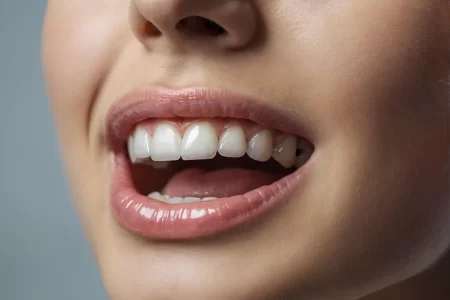What is Halitosis (Bad Breath)?
- Updated on: Jul 9, 2024
- 3 min Read
By
- Published on Feb 28, 2020

Halitosis Meaning
Bad breath is also known as halitosis in medical language. Halitosis is derived from the Latin word halitus and the Greek word osis. Halitus means exhalation and osis means a condition or disease-causing process.
Halitosis is a breath that has an unusual, unpleasant and unattractive odor. Every bad breath is not halitosis. Every day morning breath and the bad breath that comes after eating anything spicy or food with a strong odor are not considered halitosis. These two kinds of occasional bad breath last for a very short time and can be resolved by mints, mouthwash or good brushing. These are not a matter of health concern.
While halitosis is long lasting and it does not go away by brushing, flossing or rinsing. It can occur from time to time depending on the cause.
The rate of people affected by halitosis varies from 6 percent to 50 percent. After tooth decay and gum disease, halitosis is the most common dental problem. It becomes more common and severe with the age.
What are the causes of halitosis – What causes my bad breath?
Bad breath is caused by a number of possible factors. Poor oral hygiene is the main cause of halitosis. Some other causes include strong food and drinks, dry mouth, crash dieting, smoking, sinus, mouth or throat conditions and some diseases like diabetes, lactose intolerance and gum diseases. Read more about causes of halitosis.
How does halitosis (bad breath) develop?
There are millions and millions of bacteria that live in the mouth especially on the back of the tongue. Most of these bacteria do us no harm. Some aids in the digestion of food, some help protect the teeth and gums.
But there are some anaerobic, sulphur producing bacteria that live below the tongue and sometimes in the throat area. Mouth is always warm and moist which are the ideal conditions for the growth of these bacteria.
The bad odor is caused by the decay of food particles, wastes from the bacteria in the mouth and poor oral hygiene. The decay and debris in the mouth produce a compound whose main component is sulphur. The foul rotten egg smell is due to sulphur.
Halitosis is very embarrassing and demoralizing. People suffering from halitosis often isolate themselves. If not treated on time, it can lead to various other health problems.
Symptoms of halitosis
People generally notice the person affected by halitosis when they smell the bad breath and react to it as the person speaks. Sometimes, the person affected may not know that he has bad breath. The odor-detecting cells in the nose get used to the smell and become unresponsive to the continuous stream of bad odor.
Read more about signs and symptoms of halitosis.
Diagnosis of halitosis – Is it bad breath?
The dentist smells the breath from the mouth and from the nose. The smell is then rated on the basis of a scale. The patient will also be asked a few questions about:
- Bad breath problems
- Dietary habits
- Medications
- Family history
- Smoking and drinking habit
Read more about diagnosis of halitosis.
How can halitosis be treated?
The treatment of halitosis depends entirely on its cause. The most effective treatment includes improving the oral hygiene.
Dentists may also prescribe some toothpaste and mouthwash containing oxygenating agents that make the anaerobic bacteria non-functional in the presence of oxygen.
Good oral care, regular dental visits and avoiding tobacco can prevent the condition. Saliva substitute is also prescribed by the dentist for the patient with a dry mouth problem.
Read about treatment of halitosis.
Few facts on bad breath
Following are some important facts about bad breath:
- Bad breath is a chronic unpleasant odor that occurs very commonly
- Bad breath affects 1 in 4 people globally
- The most common cause of halitosis is poor oral hygiene
- Other causes of bad breath, including dry mouth smoking, tooth decay and alcohol consumption
- Crash diets can cause bad breath because of the build-up of ketones
- Volatile sulphur compounds are produced by the breakdown of food particles that are left in the mouth. This breakdown is done by the bacteria present in the mouth
- Keeping the mouth hydrated can reduce mouth odor
- Smoking and drinking make the situation worse
- Bad breath in children can occur because of other factors also like trapped items in the nasal cavity
- An easy way of treating bad breath is regular brushing, flossing and hydration
- Bad breath can also be prevented by following a good oral hygiene and avoiding foods that may cause bad smell.
- Halitosis may cause depression and anxiety












